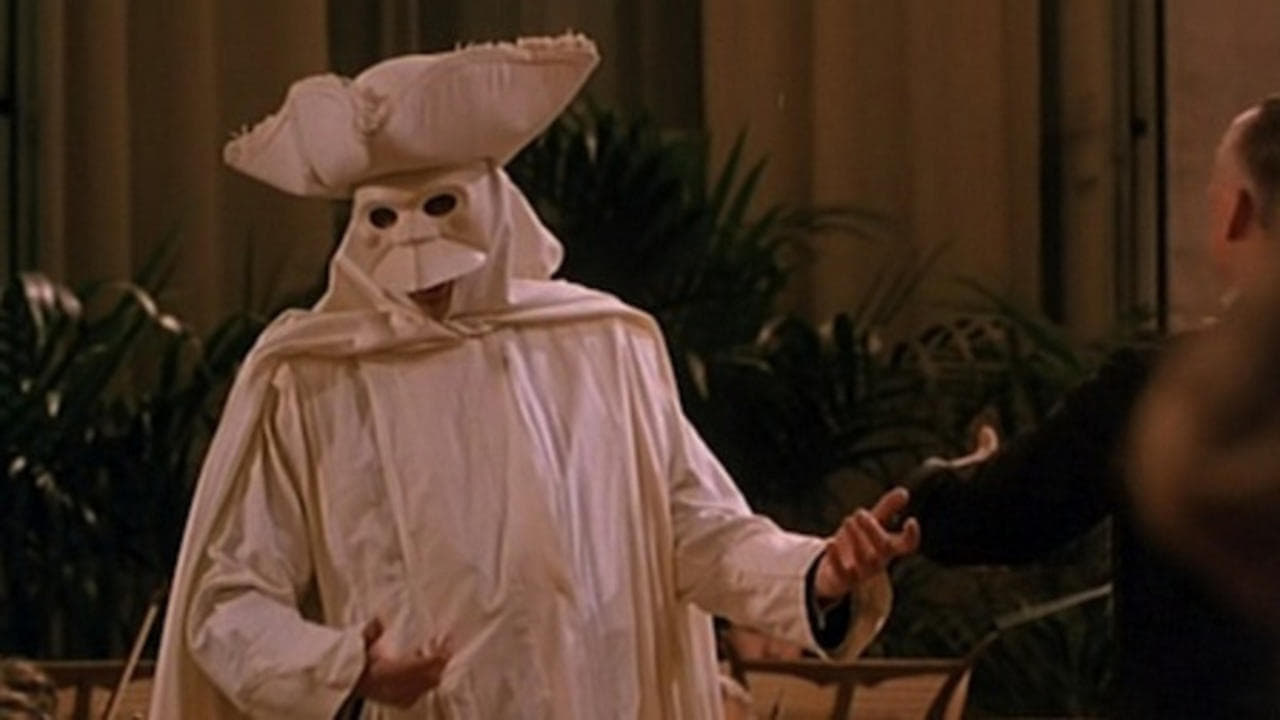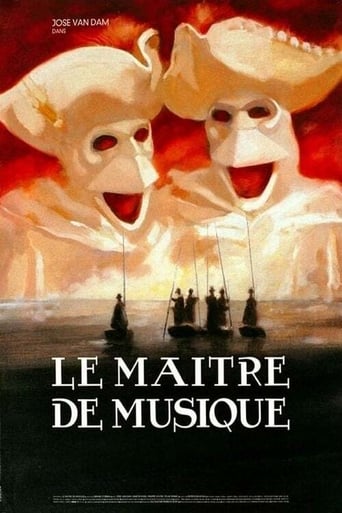

Yes, this is a movie for opera lovers. Yes, maybe other persons will be bored. But, anyway, IT IS A REAL JEWEL. Excellent music, lovely photographed scenes, charming performances... From the beginning to the end, this film deserves an undoubted adjective: BEAUTIFUL. José Van Dam is an excellent bass-baritone and one of the wold's most famous singer. Although his students (Anne Roussel as Sophie Maurier and Philippe Volter as Jean Nilson) had small timing faults during their performance in Sempre libera, whose voices were doubled by Dinah Bryant, soprano, and Jerome Pruett, tenor, their acting are so tender that you can forgive these minor troubles. The last Dallayrac scene is delicate, sublime and superb. A Gerard Corbiau masterpiece, indeed. I haven't seen Pelle, the conqueror yet, but it should be something, because Pelle defeated Le maitre de musique and Almodovar's masterpiece: Womans in the verge of a nervous breakdown and won the Oscar for a foreing language movie in 1989.
... View MoreI have just watched this film for the second time after nearly twenty years and it surprised me. I did not find it so intense and dramatic as it seemed to me the first time I saw it. The arias are beautiful, although I am not an opera lover, and the photography is gorgeous.The fault that I found with the film is its rather fast pace that conspires against the development of the characters and the whole drama. The young protegé of Dallayrac (Jose van Dam) goes through some very hard times and, all of the sudden, he is ready for the competition. It could, and would, have been better if the relationship master-pupil between Dallayrac and Jean had be given some more coverage since he (Jean) represents the greatest challenge for the aging master.The final scene where the two tenors face each other in a grand finale is fairly predictable and takes away much of the dramatic climax.Having said this, on a broader outlook it still remains a very nice and moving film, particularly when we put it against most of the films of the last twenty years, full of irrelevant stories, unnecessary bloodshed and foul language, with characters that do not show any redeeming qualities.
... View MoreI certainly disagree with the viewer who called this tedium--after all when one can't tell Mahler's Songs of Ruckert from a symphony, he is no music lover! The recurring song ("Ich bin der welt abhanden gekommen") is very meaningful for it is associated with the teacher, a retired performer (brilliantly played by opera star Jose Van Dam). The words of the song translate as " I am lost to the world with which I used to waste so much time. It has heard nothing from me for so long it may well believe me dead." The song concludes with "I live alone in my heaven, in my love, and in my song." I played this film for a class of students whose knowledge of classical music was nil and they liked it. Of course the young leads were attractive and there was some sex in the film. I suggest you view it should you get the chance. It is one of my favorite films, and you really don't need to be knowledgeable in music to like it as long as you like beauty.
... View MoreYet the back of the box that this videotape came in actually describes this film as such a cross: "Amadeus" meets "Rocky". That in itself should have been a pretty big warning.The film revolves around the retirement of an opera star, Joachim Dallayrac, and his retreat into seclusion to train two young pupils, Sophie and Jean. The former is a great admirer of his work; the latter is a petty thief whom Dallayrac sees promise in.Most of the movie simply focuses on the training of the youngsters, which is mostly just shots of them singing while Dallayrac watches. There's nothing very fresh about these scenes, and the writing is weak overall. Quotes Dallayrac's companion Estelle, when Sophie arrives at the house: "He's going to end up loving you," and so it's no surprise when he does, and then she loves him too, but then he wants her to focus on her work, and she gets upset, and ends up falling for Jean, who has already fallen for her. It's a recycled plot, to say the least.The best characters in the film are the bad guys, Prince Scotti, his attendant, and his pupil Arcas, the former two of which strut around like Bond villains and deliver their lines in similar fashion: Scotti, upon first meeting Jean, asks if Dallayrac has told Jean about him, and then utters the immortal lines: "Je suis le prince. Le prince Scotti." ("I am the prince. Prince Scotti.") It actually comes out funnier in French (to me, anyway), but the sad part is that in any event I don't think it was intended to make me laugh out loud.Scotti has put on a competition that ends up being between Dallayrac's pupils and his own, and since Sophie and Jean are the good guys it comes as no surprise to anyone when they win the day.The cinematography is good, at least, and the actors do what they can with what they've been given, but the sentimentality inherent in the premise is milked for all it's worth and then some. Sophie's performance and the vocal duel between Jean and Arcas near the end are pretty much the only highlights in what is otherwise a rather flat picture.If you're not a fan of opera, you're better off skipping this movie. If you are a big fan of opera, you might as well give it a watch, but you're probably better off actually going to the opera, where it's a lot harder to get rehashed ideas like this one greenlighted. (C)
... View More